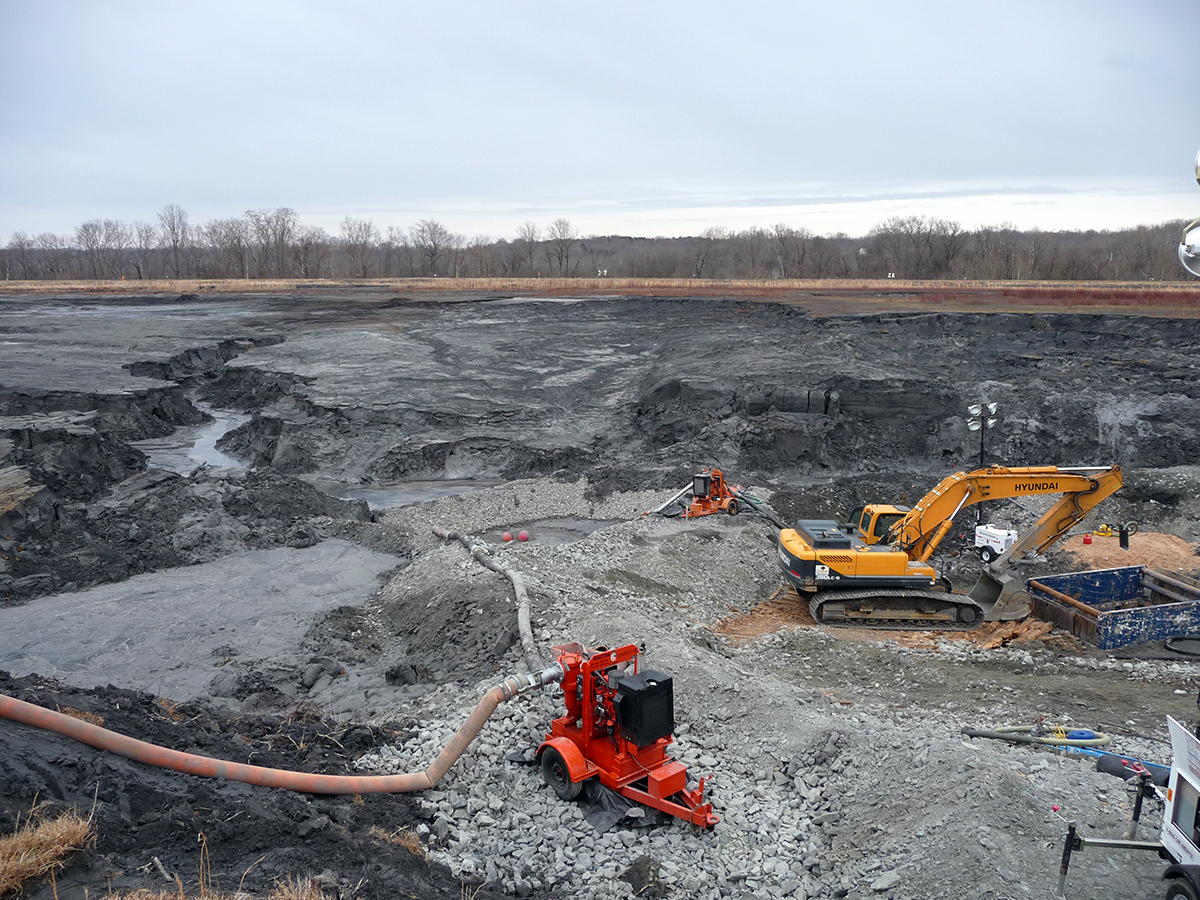A couple years ago, Georgia Power decided to close all 29 of its coal ash ponds around the state. The utility says it’s now finished excavating three ponds, including one in metro Atlanta, at Plant McDonough.
Like us on Facebook
Coal ash is a byproduct from burning coal for electricity that can contain toxic metals. There have been disastrous spills in other states, and in 2015, the U.S. Environmental Protection Agency rolled out its first regulations on storing coal ash.
At a meeting at with Georgia lawmakers on Tuesday, Aaron Mitchell, general manager of environmental affairs at Georgia Power, said the utility is making progress on closing another eight ponds around the state, and is continuing a process called dewatering at Plant McDonough. That means treating the water, then releasing it into the Chattahoochee River just inside the Perimeter in East Cobb.
Environmental groups have asked for more opportunity for the public to weigh in on the dewatering process. They want more information about the plans, and they say Georgia Power doesn’t have the right permits. The Sierra Club has threatened to sue over it.
Mitchell said it’s safe to release the water into the river.
“What we’re doing is protective of water quality in Georgia, and we want to ensure that that remains the case,” he told legislators.
Georgia Power is monitoring the water for pollutants, checking for some on an ongoing basis; others are checked every few weeks.
“From an environmental standpoint, the closure of these ponds is a good thing, and I think sometimes that gets lost a little bit in the debate that we’ve been having over what should be happening with the coal ash,” said Jac Capp, chief of the watershed protection branch at the Georgia Environmental Protection Division.
Coal ash has not just been controversial as a water issue in Georgia. There have also been concerns from communities near landfills that are accepting the ash from out-of-state utilities.
The Georgia Environmental Protection Division is proposing its own rules on coal ash management and is waiting on approval from the federal government.
Last legislative session, state lawmakers considered a couple bills that would have regulated coal ash more stringently, but they did not pass them.

9(MDAxODM0MDY4MDEyMTY4NDA3MzI3YjkzMw004))







